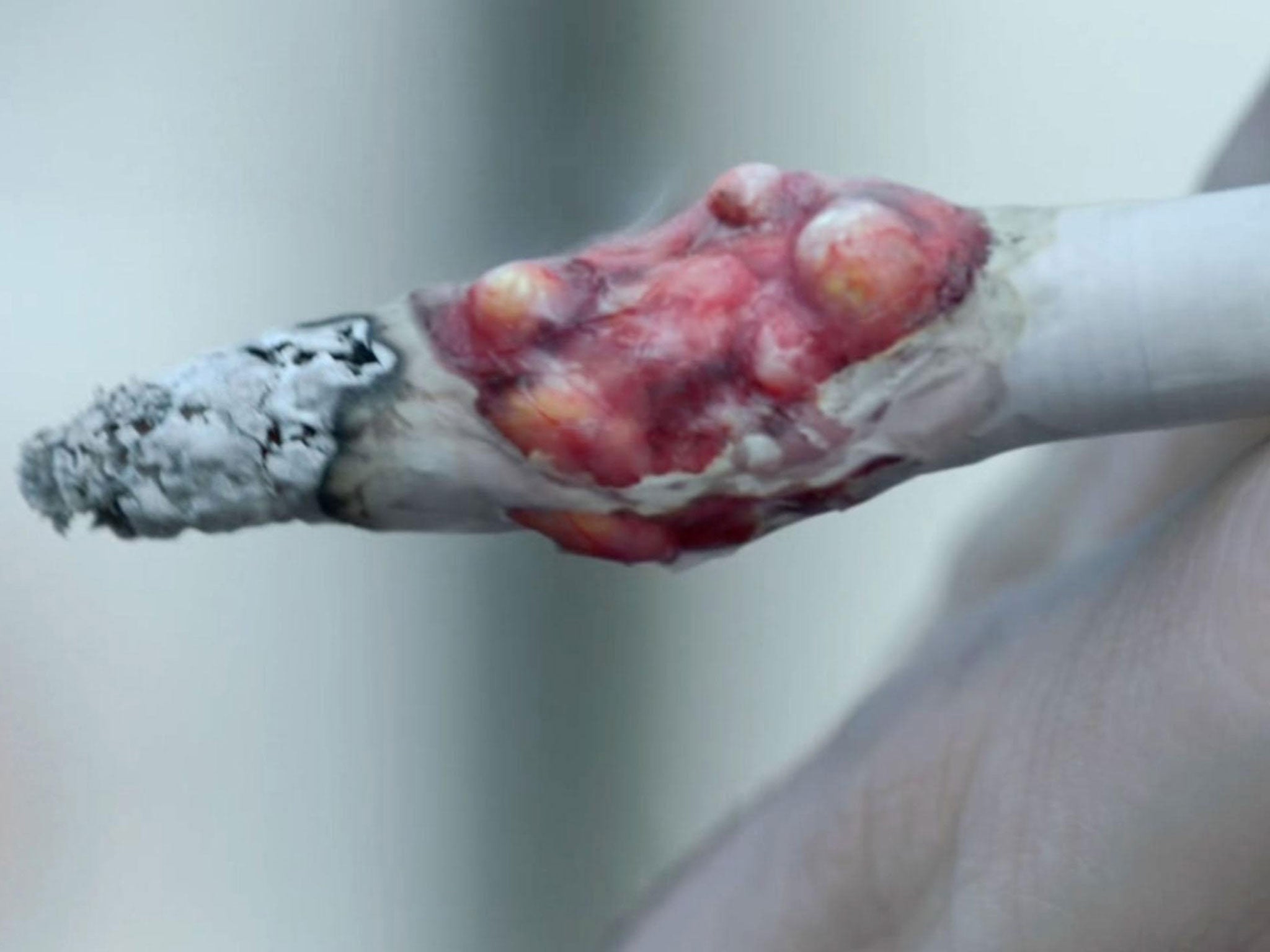Shock smoking adverts to return after failure of softer approach

A tumour growing from a cigarette will be the first image of a hard-hitting government campaign launched today to highlight the dangers of smoking.
The advertisements, which will appear on television, online and on billboards for nine weeks, will carry a message from the Department of Health (DoH) that just 15 cigarettes can cause a mutation that can lead to cancerous tumours.
The £2.7m campaign is the first by the DoH to use graphic imagery in the fight against smoking since its "fatty cigarette" adverts of 2004, which showed smokers inhaling from cigarettes dripping with fat, and graphically represented fatty deposits oozing in their arteries.
It follows several years in which a softer approach has apparently failed to convince people to quit. A recent survey showed that a third of smokers think the health risks are greatly exaggerated.
"People will see a man smoking and then a cancer growing out of the cigarette. That is what happens in people's bodies," said Professor Dame Sally Davies, the chief medical officer. "One in two smokers die from smoking, most from cancer. We know that people don't personalise the harms of smoking and don't understand what's happening in their bodies. This will show them."
Health experts remain divided over the effectiveness of shock adverts, but Dr Harpal Kumar, chief executive of Cancer Research UK, said: "We have got to reduce the impact that tobacco has on the lives of far too many people. It's not a lifestyle choice; it's an addiction that creeps into people's lives and results in death and disease."
Subscribe to Independent Premium to bookmark this article
Want to bookmark your favourite articles and stories to read or reference later? Start your Independent Premium subscription today.

Join our commenting forum
Join thought-provoking conversations, follow other Independent readers and see their replies